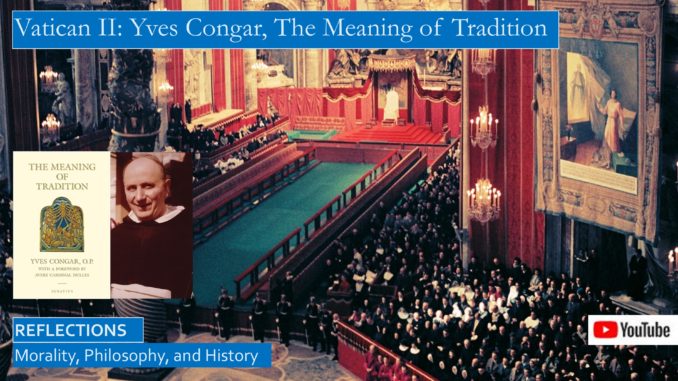
In his writings preceding Vatican II, Yves Congar wants to open a dialogue with rather than a diatribe opposing Protestantism. This is challenging, as Protestants range from the nearly Catholic high Anglicans to the speaking-in-tongue Pentecostals, but out of necessity Yves Congar concentrates on the middle of the road Protestantism, the theology of the Lutherans and Calvinists. In the first edition Yves Congar attempted to describe the various Protestant positions in more detail, in the latest edition he deleted that chapter abandoning the attempt, there are just too many Protestant theologies to understand them all.
Blog 1 of this series: http://www.seekingvirtueandwisdom.com/yves-congar-meaning-of-tradition-blog-1/
YouTube video for this script: https://youtu.be/f0gQ_Y9tROo
By abandoning diatribes, by abandoning the proclaiming of anathemas against those who disagree with Catholic doctrine, the post-Vatican II Catholic Church now explicitly believes that both Catholics and Protestants can both attain Salvation through the grace of God and His Son Jesus Christ. By opening a dialogue, the Church teaches we can learn from both Catholic and Protestant theologies, and this also infers that this encourages study, effort, and dedication. In the spirit of Vatican II, we should strive to view these as differences of emphasis rather than as differences that divide.
During the many years I attended a Baptist Church for many years I often heard the challenge, “Do you accept Jesus Christ as your personal Lord and Savior?” Many of my fellow Baptists thought that this was not something that Catholics accepted, because if they did they would truly believe, they would convert from Catholicism to the genuine faith. It did not help that a few of the Baptist faithful were former Catholics.
Yves Congar does not deny that Catholics should have a personal relationship with Jesus Christ. As Yves Congar states, “the traditional Catholic view is that our relationship with God is not by nature purely individualistic or personal.” Also, “we are united to God personally, not merely by personal links, “ but also those links to the ancient sacraments, liturgy, and through the ecclesiastical framework of the Church whose authority has been handed down through the millennia through the bishops back to Jesus and His apostles, whose teaching has been handed by the Magisterium; the writings of the Church Fathers and Church Councils, including Vatican II, down to the current day. We worship Christ both personally and as a community, in the Church.[1] Likewise, Yves Congar asserts the “Catholic conviction that Scripture can be read authentically only in the Church and according to Tradition.”[2]
Yves Congar observes that the “Protestant rejects what he does not find formally in the Scriptures. The Catholic is unable to justify his position entirely be referring to a text; but, regarding it as an element of the Christian reality he has received, he can rediscover a certain testimony in Scripture.”[3] I have personally found this to be true. When reading the early Church Fathers and the Philokalia and the Ladder of Divine Ascent, you truly can come close the true meaning of the Scriptures. Since we are imperfect selfish creatures by nature, we all tend to distort the meaning of Scriptures to justify our imperfections.
Protestants should be commended for memorizing Scripture verses, but the spiritual danger to this is you lose the context of the entire message, often you must read at least the chapters before after the verse to plumb its complete meaning. We would do better to memorize key chapters or psalms.
Another spiritual second danger is justifying our own theological beliefs by proof texting selective Bible verses that bolster our pre-determined beliefs, ignoring those that oppose our views.[4] This proof texting of patristic writings of the Church Fathers is more of a problem due to the problems of translation, transcription, and pure volume of these writings, and knowing which writings have lost the sanction of most theologians.
Yves Congar does not deny the importance of Scripture. On the contrary, he reminds us that many of the writings of the Church Fathers were commentaries on Scripture, and this has always been true, the Decrees of the Council of Trent and Vatican II are both replete with many references and quotations from Scripture. But he does push back on the extreme Lutheran slogan of Scripture Alone, the Protestant theory of the sufficiency of Scripture. As Yves Congar says, under this theory Scripture is the principal or even the sole means of grace, containing all that is necessary for the Christian to learn to live the Christian life, “it is clear, explaining itself without help and needing nothing besides itself to make known God’s thoughts.”[5] All you need is to read the Bible by yourself, the Holy Spirit will reveal everything.
If this were true, if the ordinary Christian does not need the teachings of tradition, if the Holy Spirit alone is necessary to interpret Scripture, then why did both Luther and Calvin feel compelled to write volumes of commentary on the Scripture, and why did Luther and Melanchthon fell compelled to write a Catechism? More lately, why did Billy Graham, and WL Moody, and Spurgeon, and countless other preachers, feel compelled to write many books on Scriptures and how to live a godly life? How can Protestants denigrate the value of Catholic tradition when there is also a rich Protestant tradition to aid in their interpretation of the Holy Scriptures?
OTHER INTERESTING OBSERVATIONS BY YVES CONGAR
Included in the Traditions of the Church are the pronouncements of the Ecumenical Councils. For example, the Seventh Ecumenical Council “defined the question of images, appealing to tradition and linking these to the indwelling of the Holy Spirit in the Church.”[6] When challenged whether images are idols, the response is we can review how this Council consulted Scripture in their decree. Since Jesus Christ was incarnated in the flesh, so we can venerate images of Christ and the Saints as examples to follow in our daily lives.
Likewise, the Third Ecumenical Council encourages believes to venerate the Virgin Mary, Theotokos, Mother of God. Yves Congar quotes Hugo Rahner, “ ‘The Church is the Mary of the history of the world.’ She imitates and prolongs this meditation through the centuries and will not ease until history has said its final word, and asked its final question.”
Yves Congar also discusses the role that the liturgy plays in Christian Tradition. We encourage our reader to read Congar for himself, we will sample a quote: the Christian who participates in the liturgy “is a man of peace and unified in every fiber of his human nature by the secret and powerful penetration of faith and love in his life, through prayer and worship, during which he learns, and his mother’s knee and without effort, the Church’s language: her language of faith, love, hope, and fidelity.”[7]
Yves Congar argues that “Tradition has two equally important aspects, one of development and one of conservatism.” These two aspects are in tension, the Magisterium seeks to preserve the seed of Faith as handed down by the ancient Church and Scriptures, but to preserve the seed of Faith the Church needs to apply it to modern circumstances.[8] The best example is the Catholic Catechism, it quotes Scripture and both the Eastern and Western Church Fathers while it offers thoughtful guidance to both the bishops and the faithful on problems like suicide, abortion, and marriage, while also serving as a moral compass for the faithful. Yves Congar also discusses the role of the liturgy in Tradition.[9]
A concluding observation by Yves Congar, “St Gregory the Great wrote, ‘To fail to listen to the Word is to fail to put it into practice in one’s life.’ In the New Testament, ‘to keep the Word’ is the same as to build on the foundation that is Christ, to take root and grow in Christ.”[10]
WHAT DID THE SECOND VATICAN COUNCIL SAY ABOUT TRADITION V SCRIPTURE?
As we discussed in our video on the Council of Trent, the medieval popes had locked up the proceedings of the council until the twentieth century, and Herbert Jedin’s history of the Council of Trent had been published shortly before Vatican II.
The initial drafts of the documents of Vatican II repeated the dualistic argument of Scripture v. Tradition that had been raging for centuries, but Jedin’s history revealed that the Church Fathers of Trent had not intended to argue the primacy of tradition.
During the debates on Dei Verbum, the Dogmatic Constitution of Divine Revelation of Vatican II, the bishops decided to turn down the heat on the traditional argument of Tradition v Scripture, instead saying the Holy Spirit was the source of Divine Revelation, and from the Holy Spirit flowed both Tradition and Scripture, and here we list Tradition first simply because the Christian New Testament canon was not definitely settled until the fifth century. Chapter II of Dei Verbum has a readable presentation of this argument, we simply quote from paragraphs nine and ten:
“There exists a close connection and communication between sacred tradition and Sacred Scripture. For both of them, flowing from the same divine wellspring, in a certain way merge into a unity and tend toward the same end.” “Both sacred tradition and Sacred Scripture are to be accepted and venerated with the same sense of loyalty and reverence.” “Sacred tradition and Sacred Scripture form one sacred deposit of the word of God, committed to the Church.”
(See John O’Malley, What Happened at Vatican II,
and Vatican website: https://www.vatican.va/archive/hist_councils/ii_vatican_council/documents/vat-ii_const_19651118_dei-verbum_en.html )
[1] Yves Congar, “The Meaning of Tradition,” ,” (San Francisco: Ignatius Press, 1964, latest edition 2004), pp. 61-63
[2] Yves Congar, “The Meaning of Tradition,” p. 95
[3] Yves Congar, “The Meaning of Tradition,” pp. 126
[4] Yves Congar, “The Meaning of Tradition,” pp. 97-98
[5] Yves Congar, “The Meaning of Tradition,” pp. 90-92
[6] Yves Congar, “The Meaning of Tradition,” p. 57
[7] Yves Congar, “The Meaning of Tradition,” p. 138
[8] Yves Congar, “The Meaning of Tradition,” p. 117
[9] Yves Congar, “The Meaning of Tradition,” pp. 134-142
[10] Yves Congar, “The Meaning of Tradition,” p. 113

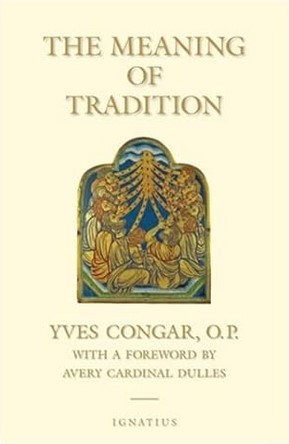
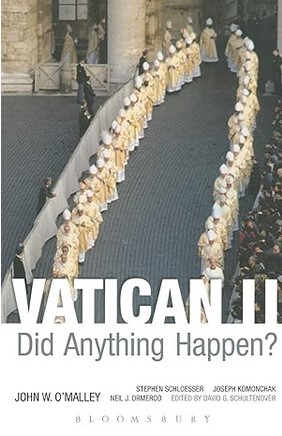
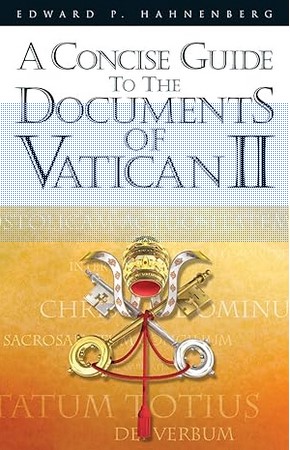
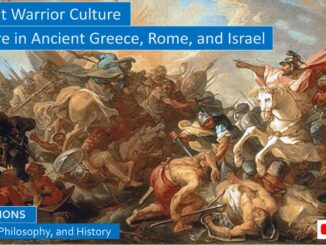
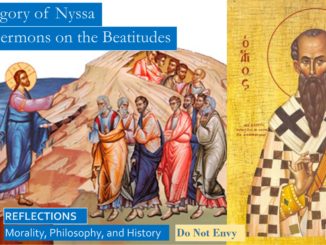
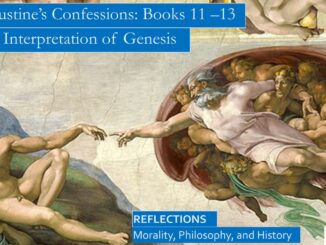
2 Trackbacks / Pingbacks